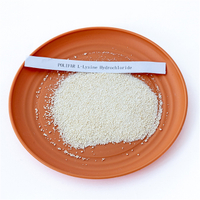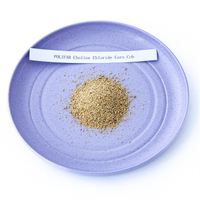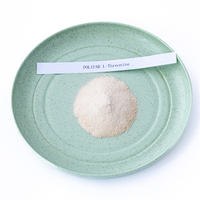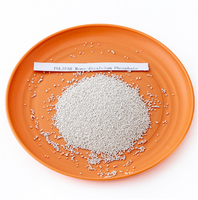Views: 0 Author: Site Editor Publish Time: 2024-05-11 Origin: Site








Antioxidants are a type of commonly used food additives used to prevent quality loss caused by oxidation reactions in food during processing, storage and transportation. Oxidation reaction refers to the chemical reaction between fats and oils in food and oxygen, resulting in adverse changes such as odor, discoloration and reduced nutritional value, which affects the quality and taste of food.
Antioxidants can inhibit or delay the oxidation reaction of food, maintain the freshness, color and nutritional value of food, and extend the shelf life of food. They work by trapping free radicals or preventing them from reacting with the fats and oils in food.
Antioxidants can be divided into two categories: synthetic antioxidants and natural antioxidants:
Synthetic Antioxidants: Synthetic antioxidants are man-made chemicals that often have potent antioxidant capabilities. They are usually single compounds or complexes, and their chemical structure can be adjusted as needed to enhance their antioxidant properties. Common synthetic antioxidants include:
l BHA (Butylated Hydroxyanisaldehyde): BHA is a commonly used synthetic antioxidant with strong antioxidant properties. It is mainly used to prevent oxidative deterioration of oils and oil products and extend their shelf life.
l BHT (Butylated Hydroxybenzophenone): BHT is another commonly used synthetic antioxidant that, like BHA, also has strong antioxidant properties. It is often used with BHA to enhance its antioxidant effects.
l TBHQ (tert-butylhydroxyquinoline): TBHQ is a highly efficient synthetic antioxidant commonly used to prevent oxidative deterioration of oils and fat products. It has strong antioxidant properties and can effectively extend the shelf life of food.
Natural antioxidants: Natural antioxidants are compounds extracted from natural plants and animals that have good antioxidant properties and are generally considered safer. Not only do they have antioxidant properties, but they also have other nutritional values such as vitamins, minerals, dietary fiber, etc. Common natural antioxidants include:
l Vitamin C (Ascorbic Acid): Vitamin C is a water-soluble vitamin with strong antioxidant properties. It is mainly found in fresh fruits and vegetables, such as citrus fruits, strawberries, tomatoes, red peppers, etc.
l Vitamin E (alpha-tocopherol): Vitamin E is a fat-soluble vitamin with strong antioxidant properties. It mainly exists in vegetable oils, such as soybean oil, corn oil, sunflower oil, etc.
l Thiosulfates: Thiosulfates are a class of natural compounds that have strong antioxidant properties. They are mainly found in vegetables such as onions, garlic, and leeks.
l Polyphenols: Polyphenols are a class of natural compounds that have strong antioxidant properties. They are mainly found in fruits, vegetables, tea, red wine and other foods, such as anthocyanins, flavonoids, flavonoids, phenols, etc.
These antioxidants can protect food during food processing and storage, extend the shelf life of food, and maintain the quality and nutritional value of food. In the food industry, the rational use of antioxidants can help food production companies improve the quality and competitiveness of their products and meet consumer needs and expectations.
The study of antioxidants began in the 1940s when researchers observed that certain substances could prevent the oxidative deterioration of fats.
During World War II, scientists noticed that certain synthetic compounds, such as BHA (butylated hydroxyanisole) and BHT (butylated hydroxytoluene), could prevent the spoilage of foods containing fats and oils. This led to the realization that these compounds had antioxidant properties.
In the following decades, extensive research was conducted to understand the mechanisms of oxidation and the role of antioxidants in preventing oxidative damage. Scientists discovered that antioxidants work by donating electrons to free radicals, neutralizing them and preventing them from causing damage to cells.
As research progressed, scientists also identified natural antioxidants, such as vitamin C, vitamin E, and polyphenols, which are found in fruits, vegetables, and other plant-based foods. These natural antioxidants were found to be just as effective, if not more so, than synthetic antioxidants in preventing oxidative damage.
Today, antioxidants are widely used in the food industry to prevent the oxidation of fats and oils, thereby extending the shelf life of a wide range of food products. They are also used in dietary supplements and functional foods to promote health and prevent chronic diseases.
Overall, the discovery of antioxidants and their role in preventing oxidative damage has had a significant impact on the food industry and our understanding of nutrition and health.
The key importance of antioxidants in food can be summarized as follows:
Preservation of Freshness: Antioxidants help prevent the development of off-flavors, odors, and discoloration in food products, keeping them fresh and appealing to consumers.
Extension of Shelf Life: By inhibiting oxidation, antioxidants can extend the shelf life of food products, reducing the need for premature disposal and minimizing food waste.
Maintenance of Nutritional Value: Oxidation can lead to the degradation of vitamins, minerals, and other nutrients in food. Antioxidants help preserve the nutritional value of food products, ensuring that consumers receive the full benefits of these essential nutrients.
Protection Against Rancidity: Antioxidants are particularly effective at preventing the rancidity of fats and oils, which can occur when they react with oxygen. By preserving the freshness of fats and oils, antioxidants help maintain the quality of a wide range of food products, including baked goods, snacks, and fried foods.
Enhancement of Product Stability: Antioxidants contribute to the overall stability of food products, helping to maintain their texture, appearance, and flavor throughout their shelf life.
In summary, antioxidants are essential additives in the food industry, helping to preserve the quality, freshness, and nutritional value of a wide range of food products. By inhibiting oxidation, antioxidants play a critical role in ensuring that consumers receive safe, high-quality, and nutritious food products.
Antioxidants are mainly used in the following types of foods:
Grease and grease products:
Oils and fat products are susceptible to the effects of oxidation, so antioxidants are often added to extend their shelf life and prevent oxidative spoilage. Common fats and oil products include cooking oil, butter, vegetable oil, potato chips, nuts and seeds, etc.
Meat products:
The fat in meat products is also prone to oxidation reactions, leading to meat deterioration and bad odor and taste. Therefore, antioxidants are often added to meat products such as sausages, ham, bacon and pate to extend their shelf life and maintain their quality.
Baked Goods:
Oils and fats in baked goods are also susceptible to oxidation. Therefore, antioxidants are often added to breads, crackers, cakes, biscuits and other baked goods to extend their shelf life and maintain their freshness and taste.
Fruit and vegetable products:
Oxidation reactions can also affect the pigments and nutrients in fruit and vegetable products, causing their color to darken and their nutritional value to decrease. Therefore, antioxidants are often added to fruit and vegetable products such as juices, canned fruits, frozen vegetables and jams to maintain their color, taste and nutritional value.
Drinks:
Pigments and natural colors in beverages are also susceptible to oxidation, causing their color to darken and their taste to change. Therefore, antioxidants are often added to beverages such as juices, carbonated drinks, tea and coffee to maintain their color and taste.
In general, antioxidants are mainly used in foods containing easily oxidized ingredients to extend their shelf life and maintain their quality, color and nutritional value. They play a vital role in the food industry, helping manufacturers produce high-quality, safe and attractive food products.
Preservatives and antioxidants are two types of additives used in the food industry to prolong the shelf life and maintain the quality of food products.
Preservatives are substances added to food to inhibit the growth of microorganisms, such as bacteria, molds, and yeasts, thereby preventing spoilage and foodborne illness. Common preservatives include benzoates, sorbates, nitrites, and sulfites.
On the other hand, antioxidants are additives used to prevent or slow down the oxidation of fats, oils, and other food components. By neutralizing free radicals and preventing oxidative reactions, antioxidants help prevent off-flavors, odors, discoloration, and nutrient degradation in food products. Common antioxidants include synthetic compounds such as BHA, BHT, and TBHQ, as well as natural compounds such as vitamin C, vitamin E, and polyphenols.
Overall, preservatives and antioxidants play important roles in ensuring the safety, quality, and freshness of a wide range of food products.
In summary, antioxidants play a vital role in the food industry by preserving the quality, freshness, and nutritional value of food products. With Polifar's high-quality antioxidants, food manufacturers can ensure the long-lasting freshness and quality of their products, providing consumers with healthier and more nutritious food options.






